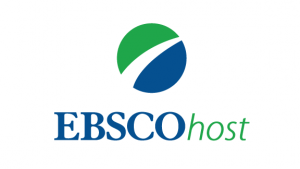Library Search Tools
REcapping our Search Strategy
We covered a lot in Part 2 of this textbook about our research process and already covered a lot in this module in regard to our search strategy, so let’s take a second to remind ourselves how far we’ve come.
First, we find our just right (not too broad, or too narrow) research topic, often using presearch to give us some focus and a solid background in what’s out there. Second, we map our research plan, identifying our information need to clarify what source types we’re looking for and where we might find those source types. Third, we start brainstorming the main concepts, related terms, and any specialized language (drawing on our presearch) used for our topic, avoiding our own confirmation bias, to create our initial search statement, which might change as we dig deeper into our research.
Now we’re ready to start selecting our search tools, wanting to select a few so that we ensure a variety of perspectives that otherwise might be inadequate based on a search tool’s limitations and underlying algorithm.
Let’s remember, I previously stated that search tool you use to find sources plays just as much a role in your research process as your sources do, so want to take a second to think about the different search tools that are out there. There are a variety of free search tools like Google that we’ll talk about in a later chapter, but right now let’s focus on search tools available on the library website because there’s a lot!
EBSCO and Gale
You have a ton of ways to access to information on the library website. In the next chapter, I’ll show you how to navigate the library website, but first let’s learn about what resources exist.
There are a lot of search tools on the library website, and it can get overwhelming. But one thing to note is that many of the tools are provided by the same two companies: EBSCO and Gale. EBSCO and Gale provide search tools, but they aren’t search tools themselves. Here’s an comparison to clarify what I mean by this: If you asked me what I had for breakfast this morning and I responded “General Mills,” you might look at me strange. Cheerios are a cereal made by General Mills just like Academic Search Premier is a search tool made by EBSCO, and Academic OneFile is a search tool made by Gale. Why am I introducing you to the company names then? Well because all EBSCO resources have the same features even when you’re searching in different tools, and same goes with all Gale resources. That’s really handy because once you learn how to use one EBSCO or Gale search tool, you’ll know how to use them all, you’ll just find different stuff!
 |
 |
When using search tools by EBSCO or Gale, you will have online access to these resources: ebooks, newspaper articles, magazine articles, scholarly articles and, occasionally, streaming video and audio files.
Popular Barber LIbrary search tools
Let’s just focus on five search tools that you might use for a variety of reasons. These aren’t the top five best search tools on the library website, they’re just commonly used and will serve as a good introduction to the library resources. It’s helpful when looking at a search tool to determine the types of sources that you would expect to find. Additionally, you want to note what subject matters are covered by the included sources. Familiarize yourself with these elements of the tools in the activity below.
Activity

